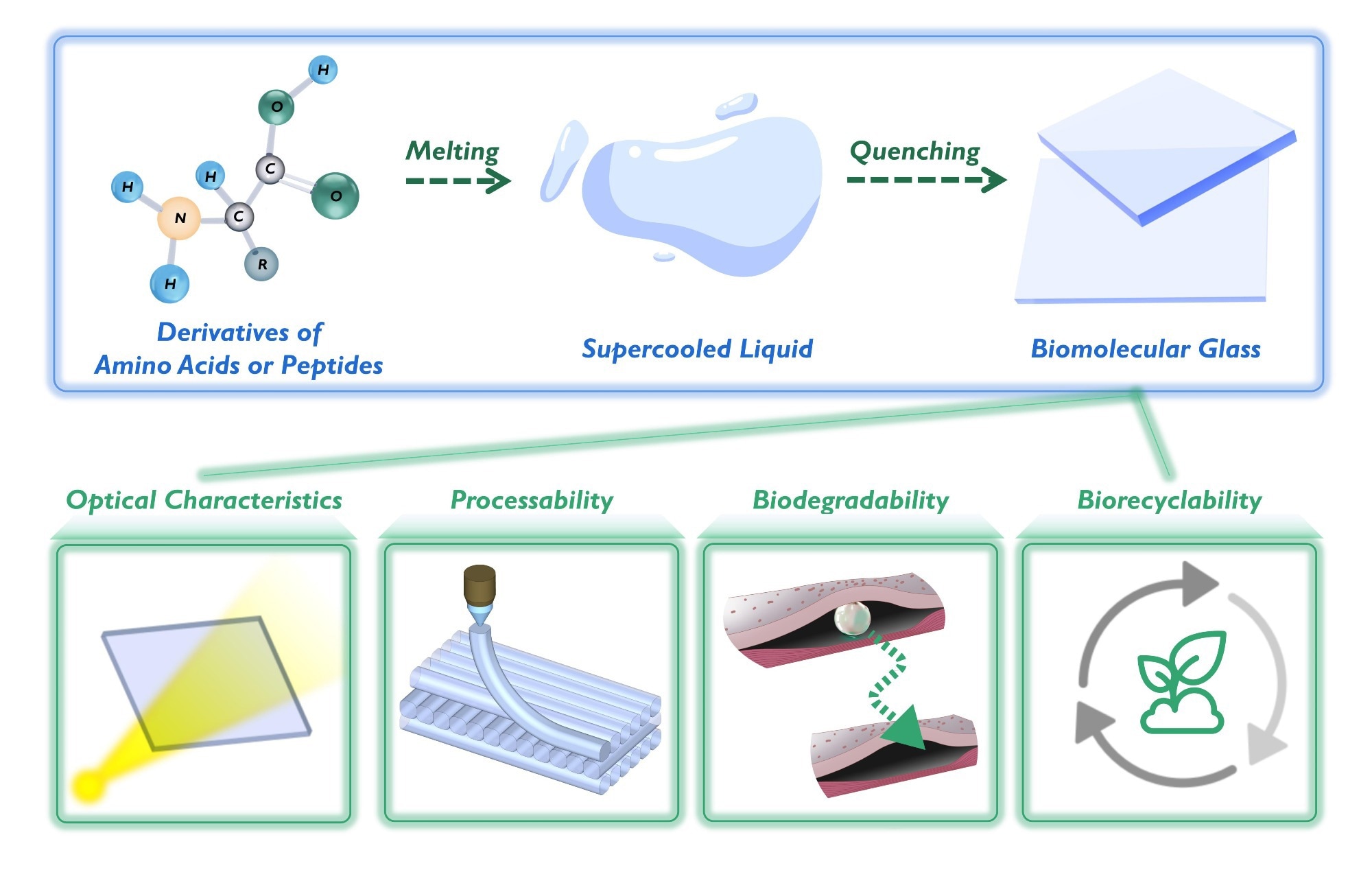Yet, the widespread use of durable, non-biodegradable glass that cannot be naturally eliminated results in long-term environmental risks and social implications.
To address this issue, a research team from the Institute of Process Engineering (IPE) of the Chinese Academy of Sciences, under the Direction of Prof. Xuehai Yan, created a family of eco-friendly glass made from biologically generated amino acids or peptides. The suggested glass can be recycled and degrades naturally.
This study was published on March 17th, 2023, in the journal Science Advances.
Conventional glass, like commercial inorganic glass and poly (methyl methacrylate) (PMMA) organic glass, is biologically incompatible and does not disintegrate easily in nature. It is expected that the development of biodegradable and biorecyclable glass would have a minimal environmental effect.
Unfortunately, however, manufacturing such eco-friendly glass of biological origin is very challenging because biomolecules possess poor thermal stability and decompose easily at the high temperatures typically used in glass manufacturing.
The standard “heating-quenching” technique was used in this study to create biomolecular glass with characteristics of biodegradability and biorecyclability using chemically modified amino acids and peptides.
The performance of the glass in vitro and in vivo, in addition to the material’s glass-transition-related kinetic and thermodynamic characteristics, were all monitored by the researchers.
Surprisingly, the biomolecular glass premised on derivatives of amino acids or peptides demonstrated a special fusion of functional characteristics and eco-friendly features, including outstanding optical characteristics, excellent mechanical properties, flexible processability, and the desired biodegradability and biorecyclability.
The concept of biomolecular glass, beyond the commercially-used glasses or plastics, may underlie a green-life technology for a sustainable future. However, the biomolecular glass is currently in the laboratory stage, and far from large-scale commercialization.
Xuehai Yan, Professor, Institute of Process Engineering, Chinese Academy of Sciences

Image Credit: Ruirui Xing
Journal Reference:
Xing, R., et al. (2023) Biomolecular glass with amino acid and peptide nanoarchitectonics. Science Advances. doi:10.1126/sciadv.add8105.